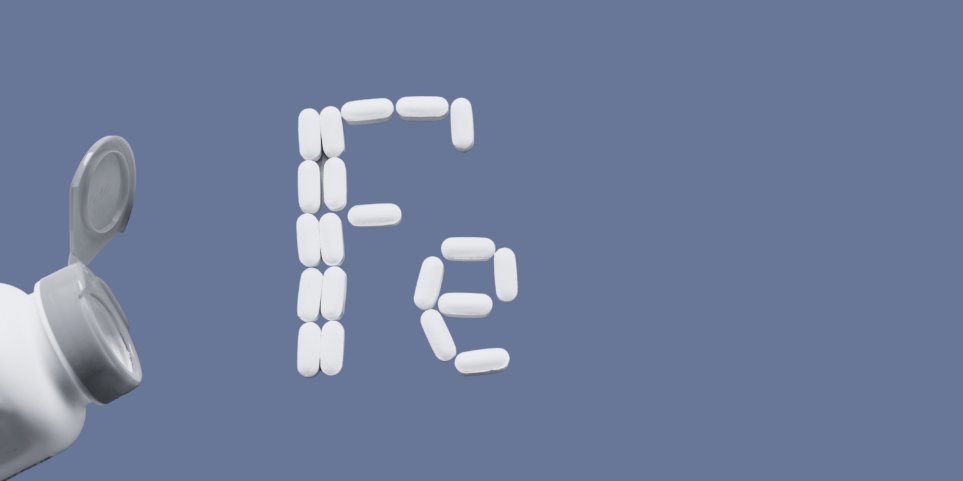


Taking iron every day is not as good as taking it every other day. ref
We know, it doesn’t make intuitive sense to take less iron when you need more of it. Our body does something interesting when it gets too much iron. In order to protect us from getting iron overload, our liver produces a chemical called hepcidin, whose job is to decrease iron absorption from the intestines. This makes total evolutionary sense to prevent us from overconsumming a mineral that could ultimately kill us.
This defense mechanism isn’t great for iron deficient people though who need to get their iron up quickly enough to feel better.
So, what to do?
Take iron every other day.
Hepcidin spikes and falls 24 hours after we take iron, so the next safe dose is two days after the last one. ref
This also really helps avoid side effects of iron too including nausea, inflammation and avoids negatively affecting good gut bacteria. Excess iron in the gut is really toxic to our cells and we feel it in many ways: diarrhea, constipation, bloating and pain.
What if you need to get your iron levels up faster?
If you really want to get your iron up quickly, taking it daily or twice daily is effective, but that might be at the cost of more side effects like nausea. One study showed if for whatever reason you want your iron up in 3 weeks take the oral amount twice per day.
If you are ok to wait 6 weeks the result of taking it twice per day vs taking it every other day is no different. Most people don’t need such a speedy response to taking iron. And most have problems with compliance and side effects, so it’s all about the long game. ref
A lot of doctors aren’t aware that if you’re anemic you can test your hemoglobin after two weeks of taking oral iron. At this point we can tell if it’s working if there is at least a 10 mmol/L increase in hemoglobin. If not, there’s an absorption issue or an intake issue.
Ask your healthcare provider to monitor your hemoglobin within weeks of taking iron, especially if you have a history of iron deficiency that didn’t improve over time. You can also ask to be monitored if you have a condition that is normally associated with poor iron absorption like crohns’ or colitis.
Normal hemoglobin is not the be-all end-all of correcting iron deficiency. Ferritin testing is crucial to learning if you’re no longer iron deficient even if you’re no longer anemic.
Take iron every other day. And test soon after starting. You’ll be better for it.